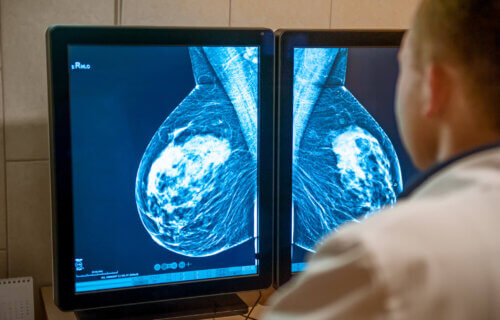LOS ANGELES — Artificial intelligence (AI) can predict the survival chances of cancer patients with a high degree of accuracy, according to a new study. Scientists have created an AI model capable of forecasting the survival outcomes for patients with various cancer types.
By analyzing gene expression patterns of epigenetic factors — which affect gene activation and deactivation — in tumors, the researchers were able to classify the tumors into distinct groups. These classifications proved to be more effective in predicting patient outcomes than traditional methods.
The team from UCLA Health Jonsson Comprehensive Cancer Center believes their work could pave the way for targeted therapies that regulate these epigenetic factors in cancer treatment.
“Traditionally, cancer has been viewed as primarily a result of genetic mutations within oncogenes or tumor suppressors,” says co-senior author of the study, Hilary Coller, professor of molecular, cell, and developmental biology, in a media release. “However, the emergence of advanced next-generation sequencing technologies has made more people realize that the state of the chromatin and the levels of epigenetic factors that maintain this state are important for cancer and cancer progression.”
Scientists further note that certain chromatin aspects, such as histone protein modifications or DNA methylation, can influence cancer outcomes.
“Understanding these differences between tumors could help us learn more about why some patients respond differently to treatments and why their outcomes vary,” Prof. Coller adds.
Previous research has shown that mutations in genes related to epigenetic factors can increase cancer susceptibility, but their levels’ impact on cancer progression is less understood. Addressing this knowledge gap is essential, as per Coller, to fully comprehend how epigenetics can affect patient survival odds.

The research team assessed the expression patterns of 720 epigenetic factors, categorizing tumors from 24 different cancer types into distinct clusters. For 10 of these cancers, these clusters correlated with significant differences in patient outcomes, including progression-free survival, disease-specific survival, and overall survival. Clusters with poorer outcomes generally had indicators of advanced cancer stages, larger tumor sizes, or more extensive spread.
“We saw that the prognostic efficacy of an epigenetic factor was dependent on the tissue-of-origin of the cancer type,” says Dr. Mithun Mitra, co-senior author of the study. “We even saw this link in the few pediatric cancer types we analyzed. This may be helpful in deciding the cancer-specific relevance of therapeutically targeting these factors.”
The team then developed and validated an AI model using the gene expression levels of epigenetic factors to foresee patient survival, focusing specifically on the five cancer types with notable survival disparities. The model successfully segregates patients into two groups: those with a higher likelihood of favorable outcomes and those with a higher risk of adverse outcomes. The genes most critical to the AI model’s predictions showed substantial overlap with the cluster-defining signature genes.
The researchers suggest that while the AI model has been trained and tested on adult patient data from the TCGA cohort, further testing on independent datasets is necessary to determine its wider applicability. The approach could also be adapted for pediatric cancers to understand how decision-making factors differ from those in adult cancers.
“The roadmap demonstrates how to identify certain influential factors in different types of cancer and contains exciting potential for predicting specific targets for cancer treatment,” concludes first author of the study, Michael Cheng, a graduate student in the Bioinformatics Interdepartmental Program at UCLA.
The findings are published in the journal Communications Biology.
South West News Service writer Stephen Beech contributed to this report.

